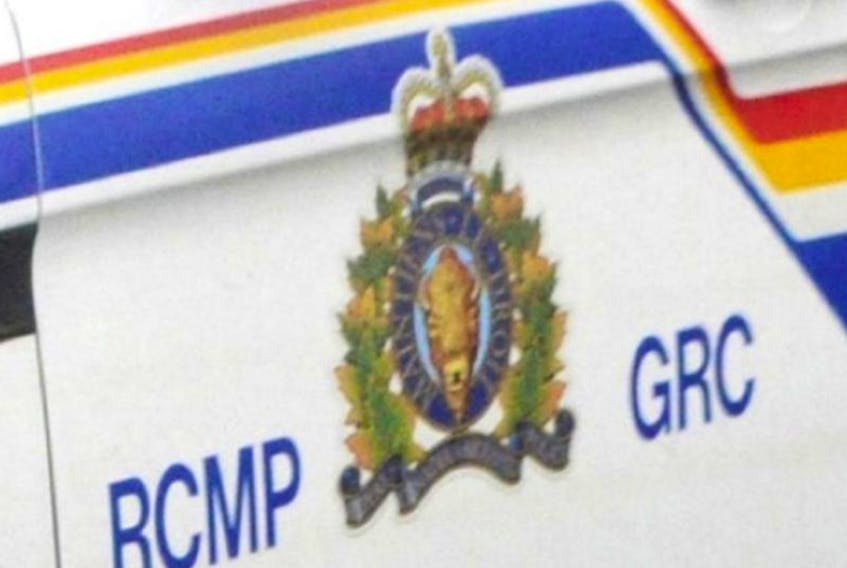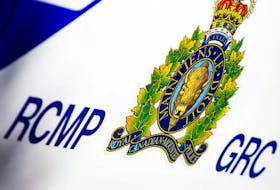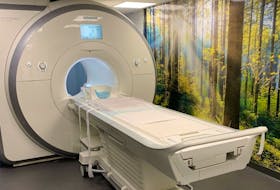GANDER, N.L. — First quarter calls for service were up nine per cent for the Gander RCMP Detachment.
From January to the end of March 2018, the RCMP received 620 calls for service, up from 567 during the previous year’s first quarter.
While Staff Sergeant Roger Flynn said the numbers weren’t alarming, the types of calls being responded to are starting to cause concern for the RCMP.
Within the first three months of 2018, 79 of the complaints surrounded theft – shoplifting, items taken from vehicles and other related thefts.
There were 13 reports of break and enters, nine were confirmed.
Related: Gander break and enter victim speaks out
It is noted in the quarterly report, investigators are noticing a steady increase in addictions related issues. It is believed to be attributing to the higher theft rates.
Flynn has noticed it as well.
“It’s subtle but it’s there,” he said. “Not necessarily in a change of numbers, but there have been subtle changes in the clientele we are working with… mental health calls, theft related calls that we know are related to addictions issues.
“It is slowly changing and slowly manifesting itself.”
This type of illegal activity is still manageable for the RCMP, but Flynn says it’s important for the central area to recognize that addictions management cannot be the sole responsibility of the police.
He said addictions are also community and health related issues, and a multi-agency approach needed to curb addiction.
“We are still very much in the stage where we can control it… my concern is the addiction level within the area, and if it’s left unchecked there is no doubt in my mind we will see a further increase crime wise,” Flynn said.
“It’s a social issue that get’s laid at the feet of the police, and if we don’t change our mindset, we are going to have a problem. Enforcement plays a role, but it’s only a portion of a productive strategy.”
Offering services
According to Central Health, there were 465 referrals for addiction within its region over the last year.
Diane Minhas, director of Mental Health and Addictions Services, stated these are substance abuse addictions, so the figure may include some alcohol and various drugs related cases.
And it could be a much higher number.
“Some people may initially come to us for mental health concerns, and when they start to work with counsellors, we find out that they have addictions concerns along with mental health (concurrent disorders), or that their primary issue is really addictions,” she said.
Furthermore, there may be others accessing services outside of the area.
She couldn’t say if addiction rates are stable in central Newfoundland.
“It’s very difficult to say if it’s controllable or out of hand, but what I will say is that we are providing services and increasing services to meet the demand,” Minhas said, adding, “we can’t hide away and say it doesn’t impact us in central Newfoundland because it does significantly,”
In addressing addictions, Minhas said Central Health has offices established throughout the Central Health region to offer counseling. It also offers addiction counselling through telehealth services, and two physiatrists – in Gander and Grand Falls-Windsor – to help those facing addiction.
The two central hospitals also offer walk-in service.
“All they have to do is reach out,” she said.
For rehab, Central Health provides referrals to adult treatment centres in Corner Brook and Harbour Grace, and youth treatment in Grand Falls-Windsor.
While there isn’t a narcotics anonymous group in Gander, there is one in Grand Falls-Windsor.
Central Health also stocks Naloxone, an opioid suppressant used to treat overdose.
And while Minhas noted that not all addiction leads to crime, Central Health has made inroads with the Bishop’s Falls Correctional Facility, offering support, education and awareness to felons.
“We just recently started going to the prison, because a lot of people that are incarcerated have had addictions issues,” she said. “We provide education, as well, individual counseling through telehealth or one-on-one whenever possible.”
By offering the service while incarcerated, she said, it allows the addictions service connection to remain in place upon release.
Telehealth is also offered at Her Majesty’s Penitentiary in St. John’s, to assist those from the central region.
Minhas said addictions has become a concern of provincial government as well, as it will be implementing recommendations from the Towards Recovery: The Mental Health and Addictions
Action Plan for Newfoundland and Labrador.
What should come of the recommendations, according to Minhas, is a one-stop form of addictions treatment, that would provide psychiatric, pharmacist, addictions counsellor, and nurse practitioner services.
“In the past people with addictions were advised to seek counselling service first. If that didn’t work, they might be referred to a physician for methadone (maintenance treatment to taper opioid dependence),” Minhas said. “Now the Canadian government has said this is no longer a last resort, it will be first line of treatment – methadone and suboxone.
“What you’re going to see throughout the region is people having easier access to this service and we are working towards that now.”
It also comes with ‘choosing wisely’ guidelines for physician in issuing prescriptions of medications.
But Minhas does agree that the best way to curb addictions is to prevent it before its starts.
The health authority has a promotion team to present at schools and community groups about addictions issues.
Gander RCMP – First Quarter – January to March highlights
• A total of 620 calls for service, up from 567 during last year’s quarter. A nine per cent increase.
• There were 79 theft related complaints — shoplifting, items taken from vehicles, and, other thefts.
• Thirteen break and enter reports from January to March – nine confirmed.
• Eight per cent of break and enters have been cleared by charge, 38 per cent complete unsolved, and 28 per cent not cleared/continuing investigation.
• The RCMP believes higher rates of theft can be directly attributed to problems associated to drug abuse.
• There were 41 crimes against persons reported – assault, assault with weapon or causing bodily harm, criminal harassment, robbery, sexual assault and uttering threats.
• Seven injury collisions, 49 other vehicle collisions reported.
• Two drivers charged with impaired driving.
• Seven persons were charged with failing to comply with various court orders.









